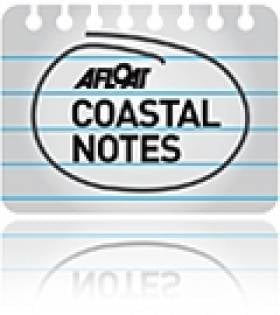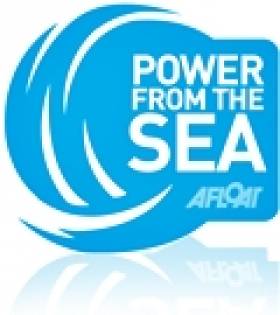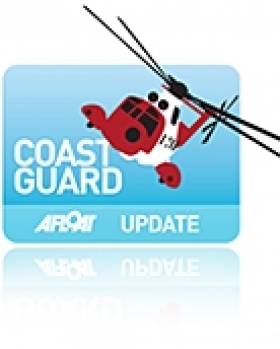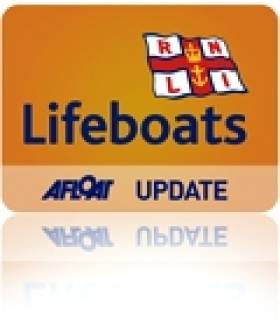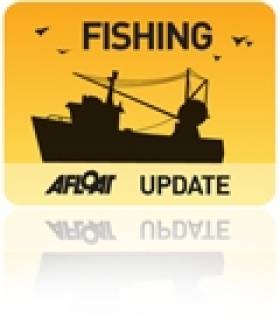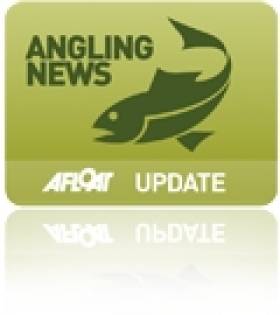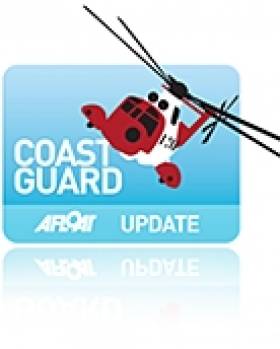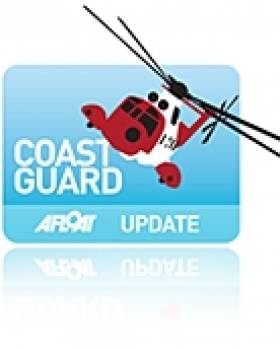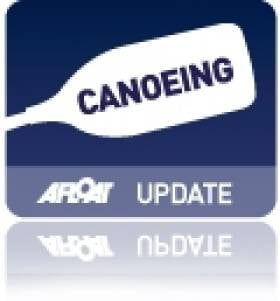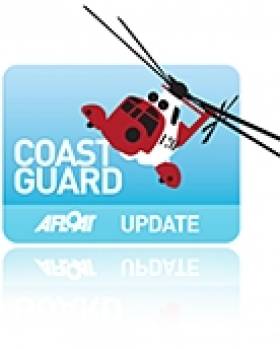Displaying items by tag: Northern Ireland
Ireland's Bathing Spots Among Cleanest in Europe
Ireland has ranked fifth in a new Europe-wide report on bathing water quality - but some beaches in Northern Ireland are falling short of strict EU standards.
MEP Jim Higgins welcomed the results of the annual Bathing Water Report for 2010, saying: "Ireland's scenic attributes are a primary reason for attracting tourists and it is essential that our coastal and inland bathing sites are also enticing."
Ireland has moved up five places from its overall rank of 10th in 2009, with 90.1% of all bathing water sites meeting the EU's Blue Flag guidelines for water quality at beaches and swimming spots.
However, the Daily Telegraph reports that a number of beaches in Northern Ireland and other parts of the UK were judged to be 'poor'.
Beaches at Newcastle and Ballyholme in the North are among 16 across the UK that did not pass the EU's strict checks for Blue Flags.
The 2010 report ranks Cyprus as the cleanest bathing spot in Europe, with 100% of sites passing EU insspection. It was closely followed by Croatia with 97.3%, Malta at 95.4% and Greece at 94.2%.
New Mammal Detection Sonar System for Sea Turbines
The latest product from sonar technology company Tritech is a mammal detection system for use around underwater turbines.
According to the manufacturers, the Gemini SeaTec system uses a multi-beam sonar and image detection software to provide real-time monitoring and warning of sea mammals in the vicinity of subsea turbines, allowing operators to take corrective action.
The system also logs valuable data that may be used for environmental assessment in any sea turbine development project.
Tritech's system is already installed on the SeaGen tidal turbine in Strangford Lough in Northern Ireland. The system also has future possible applications in cable lay survey operations and general subsea monitoring.
For more details visit the Tritech website.
UK Minister Grilled Over Coastguard Closures
The UK Shipping Minister has hit out at claims that Northern Ireland coastguards were barred from speaking to the Commons committee looking into plans to streamline the British coastguard network.
According to the Belfast Telegraph, Minister Mike Penning maintained he had "not gagged anybody" when questioned over his forbidding officers from a number of coastguard stations - including Bangor - from giving testimony to the transport committee.
The minister explained his decision on the basis that coastguards are civil servants and that "a civil servant's job is to support the government of the day".
He also indicated to the inquiry panel that he was working towards keeping open 10 stations instead of the eight listed in the original plans, under which Bangor would either be downgraded to a daytime station or closed outright.
The Belfast Telegraph has more on the story HERE.
Donation for Bangor Lifeboat Crew
RNLI Bangor's volunteer lifeboat search and rescue crew were pleased to receive a donation of £500 from the Bangor Marina Berth Holders Association this week.
Association chairman Martin Wilson said: "Every year our members raise funds for various local nautical charities and this year we decided that the RNLI Lifeboat at Bangor would be one of our worthy causes."
Bangor RNLI operations manager Kevin Byers said that the RNLI "is always grateful to receive funds, being a charity we are totally reliant on suchdonations. It allows us to provide 24-hour emergency cover and to continueto save lives at sea."
He added: "I would like to thank the Bangor Berth Holders Association for their support."
Mussel Dredgers Make a Fleeting Trawl of Dalkey Sound
Two mussel dredger-trawlers made a rare transit of Dalkey Sound, last Friday, writes Jehan Ashmore.
The sound which is located to the south of Dublin Bay is not used by commercial traffic but is frequented by pleasure-craft, local fishing boats from Dun Laoghaire. In addition to occasional traffic by the Irish Naval Service, Marine Institute research vessel RV Celtic Voyager, the GSI's RV Keary and foreign tall-ships.
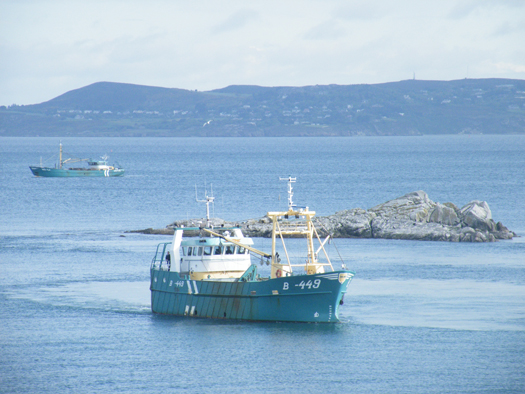
Dublin Bay. Photo Jehan Ashmore/ShipSNAPS
The vessels were making a southerly direction as they headed across Dublin Bay towards Dalkey Island. Mytilus lowered a mussel cage bucket into the sound which was dragged on two separate occasions over a short distance running parallel between the island and the coast.
The operation was all too brief as the Mytilus then proceeded into Killiney Bay followed closely astern by Branding. Upon entering the neighbouring bay, both vessels conducted dredging activity before continuing south beyond Bray Head.
Mussel grounds are located throughout certain hotspots in the Irish Sea and earlier this month, it is reported that there was a notable increase in mussel dredgers in Bangor, Northern Ireland. The dredgers were the Mytilus and Branding which berthed at the Co. Down harbour after a lengthy period of relative inactivity.
Mytilus was built in The Netherlands by Scheepwerf Van Os Yerseke B.V. and appeared in an episode of the successful BBC TV series 'Coast'. At the time of the broadcast she was registered at Beaumaris, Anglesey and was seen working in the northern approaches of the Menai Straits. The fishery grounds are ideally suited for the growing processes required in farmed mussel production.
Branding was also built by a Dutch shipyard, Kooieman in 1988 and her design is typical of the mussel dredgers based in Wexford. The market for mussels is mainly from the northern European countries of Belgium, France and the Netherlands.
- Dublin Bay
- Coast
- Marine Institute
- Northern Ireland
- naval service
- Dublin Bay News
- Anglesey
- Ports and Shipping News
- Island News
- RV Celtic Voyager
- TallShips
- RV Keary
- Geological Survey of Ireland
- GSI
- Mussel dredgers
- Mussel trawlers
- Mytilus
- Branding
- Dalkey Sound
- Fishery
- Menai Strait
- Beaumaris
- Banger
- Fish news
- BBC
- BBC TV series 'Coast'
- Belfastregistered
- Wexfordregistered
- Dutchbuilt
- Mussel markets
- Killiney Bay
- Bray Head
Win a Day's Fishing with Top Athlete Dean Macey
Ten lucky participants in the UK's National Fishing Month events will have a chance to win a day's fishing with Commonwealth gold medalist Dean Macey.
"‘I am more than happy to give up my time to encourage newcomers into this wonderful sport," said top decathlete Macey, who is also an avid fisherman.
The competition is open to anyone who has a go at fishing during National Fishing Month, which highlights and celebrates angling and encourages would-be anglers to try it out, from 16 July to 14 August.
Entry forms will be available at events throughout Britain and Northern Ireland.
For more information visit www.nationalfishingmonth.com.
UK Coastguard Reforms Branded 'Shambles'
Britain's shadow transport secretary has branded a "shambles" plans to reform the UK coastguard service that could see the closure of Northern Ireland's only dedicated search and rescue base.
The Belfast Telegraph reports that Labour's Maria Eagle questioned Secretary of State Philip Hammond on the issue in the Commons on Thursday.
"Why does he not just abandon the ill-thought-through proposals, which will leave our coastline a more dangerous place?' she asked.
Hammond, however, dismissed Eagle's challenge as "opportunism", noting that proposals to reform services of the Maritime and Coastguard Agency (MCA) were first made by the previous Labour government.
As previously reported on Afloat.ie, British Prime Minister David Cameron has already promised a rethink on the plans to streamline the UK's network of coastguard stations.
The public consultation on the proposed cuts ended on Thursday.
'Grave Consequences' If UK Coastguard Stations Close Says Union
Union leaders and seafarers have spoken out over the proposed closure of coastguard stations across the UK as a parliamentary committee begins its inquiry into the cutbacks.
Northern Ireland's only full-time search and rescue centre at Bangor is one of 11 stations under threat of closure under plans spearheaded by Shipping Minister Mike Penning to streamline Britain's coastguard network down to just seven bases.
According to the Belfast Telegraph, officials from mariners' union Nautilus International told MPs at the Commons Transport Select Committee that there should be an "absolute minimum" of 11 stations across the UK, lest there be "grave consequences for safety in UK waters".
British Prime Minister David Cameron has promised to rethink the proposed reforms if they pose any threat to safety at sea. The Labour Party has already branded them as "ill-thought-out madness".
The public consultation on the proposed changes is set to close on 5 May.
Shooter Gets Ready to Kayak Round Ireland
Monaghan's Elaine 'Shooter' Alexander will soon begin her challenge to be come the first Northern Irish woman to circumnavigate the island of Ireland by kayak, the OutdoorNI Adventure Blog reports.
On 3 May she will set off from the newly refurbished County Antrim Yacht Club at Belfast Lough on a 1,000-mile trek that's expected to take two months to complete.
Alexander will be paddling clockwise around Ireland, taking on tides, cliffs, headlands - and Ireland's unpredicable weather.
The Ulster woman has been training since last year for the challenge, which is intended to raise funds for the Fermanagh-based SHARE, a charity that brings together disabled and non-disabled people in arts and outdoor-based activities.
“Last year I paddled around Ulster which took 26 days and prepared me for some of what to expect for this expedition," says the competitive kayaker, who represented Northern Ireland twice at the Surf Kayak World Championships.
'Shooter' will also be posting regular updates of her trip on Facebook, Twitter and YouTube. Details on this as well as how to donate are available on her website www.canoearoundireland.com.
The OutdoorNI Adventure Blog has more on the story HERE.
Possible Rethink on UK Coastguard Cutbacks
The British government could be ready to change its plans for the streamlining of the UK coastguard service.
The Belfast Telegraph reports that while there will be no turning back on reforms, concessions such as closing fewer stations and keeping more open 24/7 are being considered - which could save Northern Ireland's only full-time coastguard base from the chop.
The centre at Bangor was earmarked for scaleback or closure under plans proposed by Shipping Minister Mike Penning, But he was forced to extend the consultation period, with a spokesperson saying that "the government is committed to taking all points of view into account before decicing how best to proceed".
Shadow Shipping Minister Jim Fitzpatrick said: “We were concerned about the level of cuts initially proposed and are pleased that the Government appears to be reviewing its plans."
The Belfast Telegraph has more on the story HERE.


























